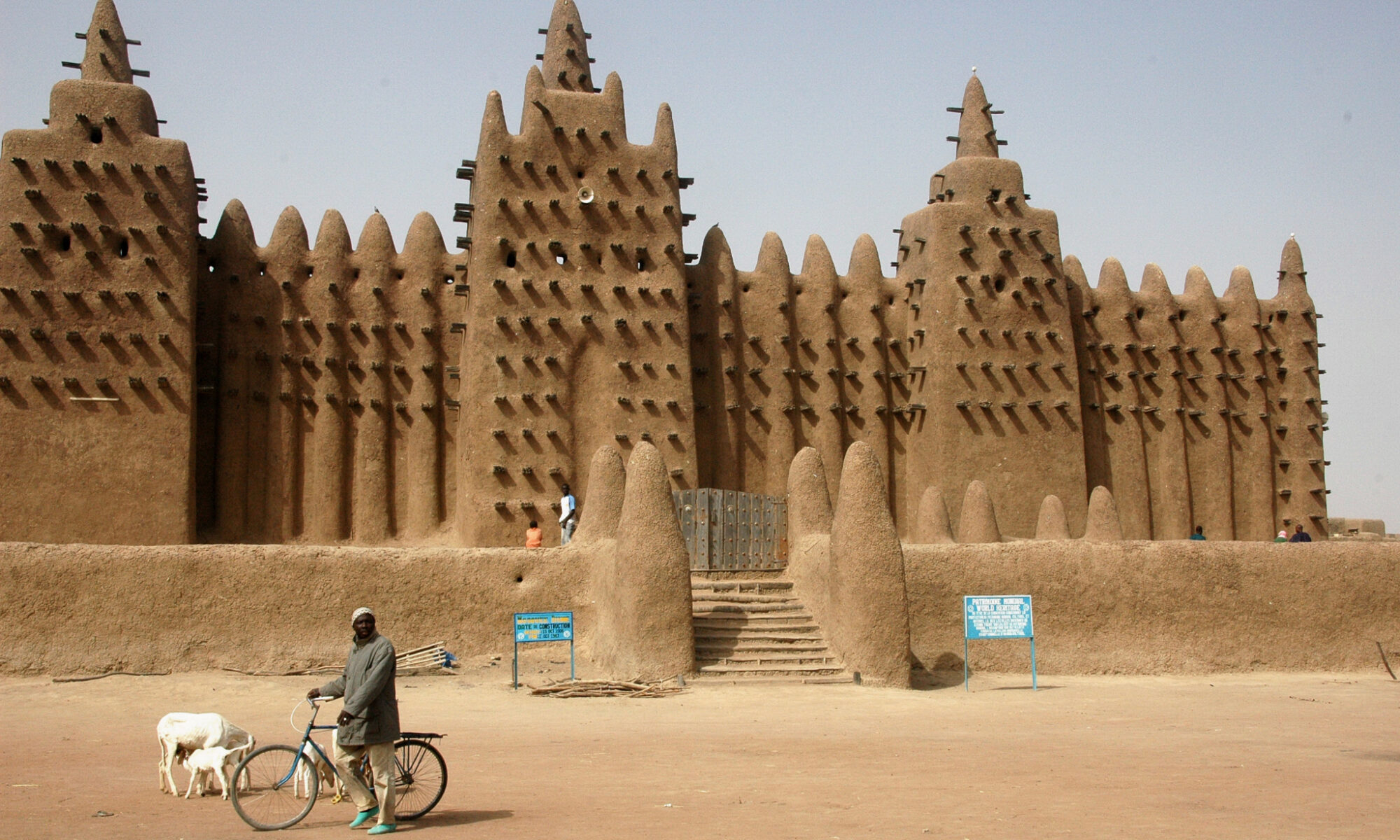The #1 Thing you need to know about the next 40 years, according to the Smithsonian is: “Sophisticated Buildings Will Be Made Of Mud”
Earthquake Construction Manuals
Construction manual for earthquake-resistant houses built of earth by Gernot Minke.
Low-Cost Reinforcement of Earthen Houses in Seismic Areas by M. Blondet, J. Vargas and N. Tarque.
Red Earth
Experimental Historian, friend and colleague, David Gissen, discusses Earth Architecture and makes an argument for red earth. He writes:
“In arguing for a red earth, I’m not arguing that earth holds an innate leftist proletarian politics in its chemical composition, nor am I completely arguing for the social construction of earth. I am arguing that our engagement with earth offers the possibilities for new liberatory ways of understanding space, that remain tied to earth’s commonness.A powerful concept of red earth, tied to its ubiquity and free nature, might be found in the roots of much red thought — Marx himself. In his Critique of German Ideology, Marx understood earth (as concept and thing) as the base of political economic philosophy. In one of his most famous passages, he wrote “In total contrast to German [idealist] philosophy, which descends from heaven to earth, we here ascend from earth to heaven.” Marx saw earth (both soil and “the earth”) as the base of his philosophy because it was the defacto element that contained the material and ideological possibilities of society (its nourishment, production, and metaphysics). For Marx, earth contains the conditions of society by society. Earth not only delivers the grains grown by a farmer, but when a person digs his shovel into earth to grow something he or she becomes “a farmer.” When a person binds the earth into bricks he or she becomes “a builder.” The earth is social matter and structure, how we engage with it repeats existing structures and opens up new concepts.”
Arquitecturas de Terra

Arquitecturas de Terra is a Portuguese-language blog dedicated to, what else, earth architecutre.
Talk Earth
Want to talk about earth architecture? Join the discussion at Archinect.
Rammed Earth & Modular Contained Earth
Alternative Construction: Rammed Earth & Modular Contained Earth is a 3-hour interactive online course examines the systems and materials associated with alternative construction, including scenarios on the uses of rammed earth and modular contained earth. It discusses their histories, environmental impacts, and construction methods. This is part of a series of courses concerning Alternative Construction: Contemporary Natural Building Methods.
Rammed Earth is for Everyone
Rammed Earth is for Everyone, claims this new blog devoted to rammed earth. Good bibliographies and examples of soil mockups.
Earth Building Research Forum
The Earth Building Research Forum was set up by Dr Kevan Heathcote and Mr Gregory Moor in the Faculty of Design Architecture and Building of UTS in December 1999. It was originally envisaged as a forum for disseminating ideas and research into the performance of earth buildings but has since been widened to include a database of earth building projects, information on forthcoming conferences, linkages to other earth building sites and to include more general articles on the subject. The Forum hosted an international earth building conference at UTS in January 2005 (EarthBuild 2005) and this is planned to be a biennial event. The Conference brought together engineers, environmentalists, builders and architects from around the world.
Getty Center Conservation Newsletter on Earthen Architecture
From the Getty Center Conservation Newsletter Volume 16, Number 1 – Spring 2001
The Conservation of Earthen Architecture by Alejandro Alva Balderrama
Conservation and Continuity of Tradition: A Discussion about Earthen Architecture with Anthony Crosby, Hugo Houben, John Hurd, Neville Agnew, Erica Avrami
Project Terra by Erica Avrami
Joya de Cerén: Conservation and Management Planning for an Earthen Archaeological Site by Carolina Castellanos, Françoise Descamps, and María Isaura Aráuz
Earth Architecture Discussion Forums
Two discussion forums on the web dealing with earth architecture are:
Adobe Group, Suncured earthen adobe bricks, not the software, used for home and large building construction. Mainly a forum for owner-builders worldwide to exchange ideas, techniques, inspiration and support. Professional builders, architects, engineers and students are most welcome. This group was founded on the idea that plain, simple adobe as used over the millennia works well in the modern world and needs no improvement, just encouragement. English language group moderated by Quentin Wilson of El Rito, New Mexico, U.S.
Arqui-Terra, La tierra ha sido y es el material de construcción más utilizado por la humanidad. La ciudad prehispánica de Chan Chan (Perú), las murallas milenarias, las kasbahs de Marruecos, mezquitas de Mali, rascacielos de Yemen, algunas obras de Gaudí y modernos hoteles en EEUU son de tierra. También un tercio de las viviendas de la humanidad. Esta lista pondrá en contacto a los interesados por la arquitectura de tierra europeos y latinoamericanos, para su estudio y conservación. Spanish language group moderated by Jose Maria Sastre Martín of Castilla y León, Spain.
